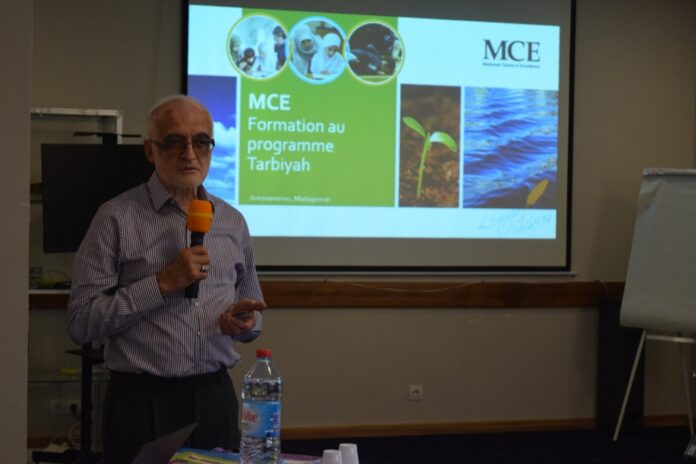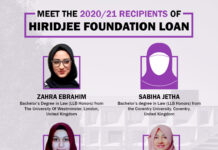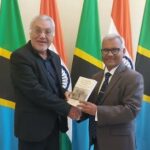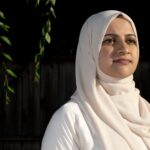Work to spread the benefits of a new integrated approach to Islamic education has taken a step forward after a visit by MCE (Madrasah Centre of Excellence) leaders to Madagascar.
The new approach was enthusiastically welcomed by smaller Jamaats around the island, although the main Jamaat in the capital Antananarivo has asked for more time to consider the proposition before deciding whether to adopt it.
Other French-speaking Jamaats have already embarked upon Tarbiyah, led by Reunion, which took on the task of translating the English version into French. Mauritius and Paris have likewise adopted the curriculum.
MCE leaders had been invited to explain the new Tarbiyah curriculum to community leaders during the Madagascar territorial council, the CROI (Counsel Regional of the Indian Ocean), at the end of March.
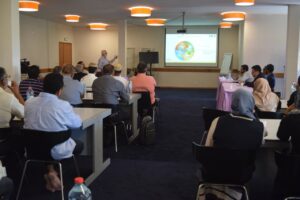
Tailored to student needs
The new Tarbiyah curriculum, the result of over five years’ research and deliberations, has been tailored to the needs of today’s madrasah, evening and weekend school students. It is a flagship project of The World Federation.
Based on the concept that Islam is a complete way of life, the curriculum portrays our faith as holistic rather than compartmentalised, and provides students with a more practical and relevant appreciation of Islam. Different components – the Qur’an, the Akhlaq, Islamic history and jurisprudence – are integrated rather than each subject being taught separately.
The integrated approach has been, or is in the process of being, adopted by more than 35 madrasahs around the globe, with many more in the pipeline awaiting training.
The framework for the curriculum is defined as a Qur’anic worldview on piety (taqwa or birr) as expounded by the Ahlul Bayt (AS). A student, having been through the curriculum from the age of 4 to 16, should be able to answer four fundamental questions in life: Who am I? Where do I come from? What is my purpose in life? and Where am I headed?
A sense of pride in the community
Students gain the Islamic knowledge, understandings, skills and values necessary to participate and apply in a changing world, as well as achieving their personal best and developing a sense of pride in themselves, their madrasah, their community and their environment.
The benefits of the integrated approach were warmly welcomed by Madagascar’s provincial madrasahs in towns such as Majunga and Tulear. “These Jamaats were very receptive, keen to launch the integrated curriculum and have asked for teacher training support,” said
Sheikh Safder Jaffer, MCE Head of Curriculum Development (Tarbiyah).
He travelled to Madagascar with a delegation comprising Alhaj Naushad Mehrali, head of MCE, and Seyed Hassan Naqvi, head of AFED’s Tabligh Board.
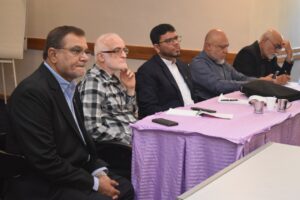
Listening to feedback
MCE has offered the Antananarivo madrasah the opportunity to provide its feedback and constructive critique, especially as the English curriculum is being translated. MCE will give a scholastic response to some concerns that were raised by a scholar in Madagascar – which Sheikh Safder said were not based on “fundamental differences in ideology but rather differences of opinion, perspectives and approach.”
“Our visit to Madagascar was very useful in educating people about the curriculum and MCE and an excellent opportunity to meet leaders of the community across the country, embracing them in our global engagement and listening to their perspective and views,” he said.
Sheikh Safder added: “There is no enforcement of Tarbiyah/MCE curriculum on any madrasah or Jamaat or region. Every madrasah is free to choose their own timing and readiness before embracing Tarbiyah. MCE is here to support.”


